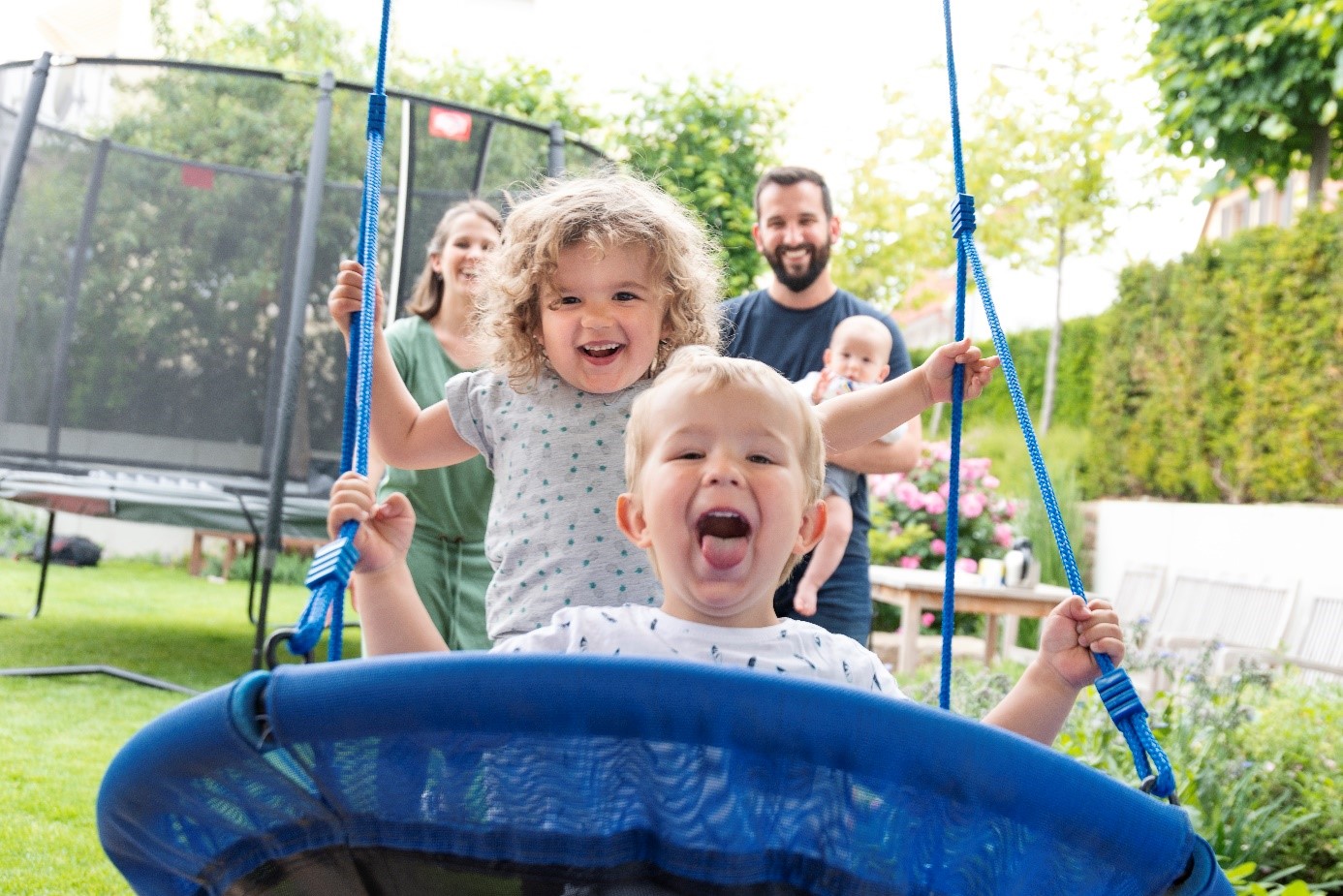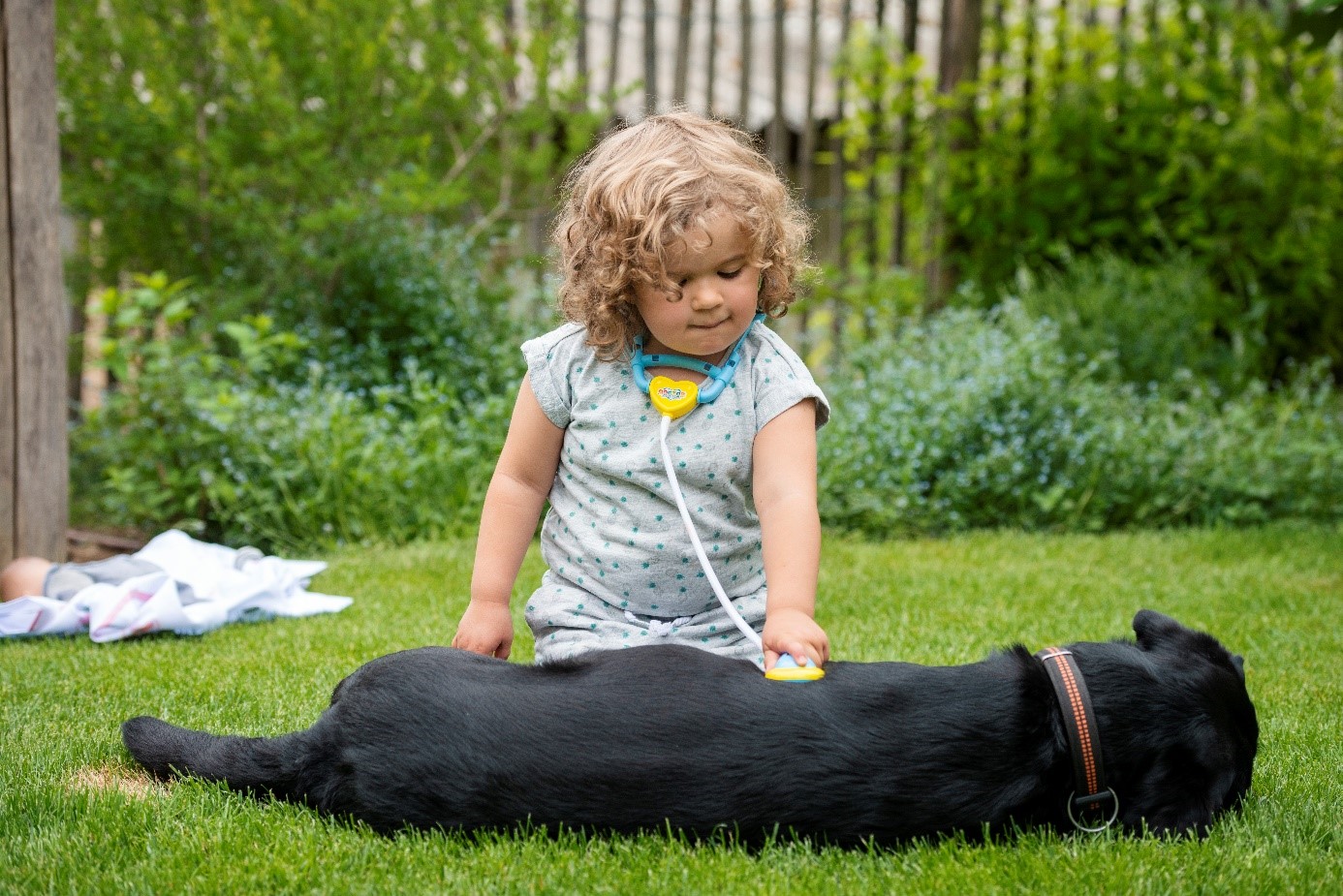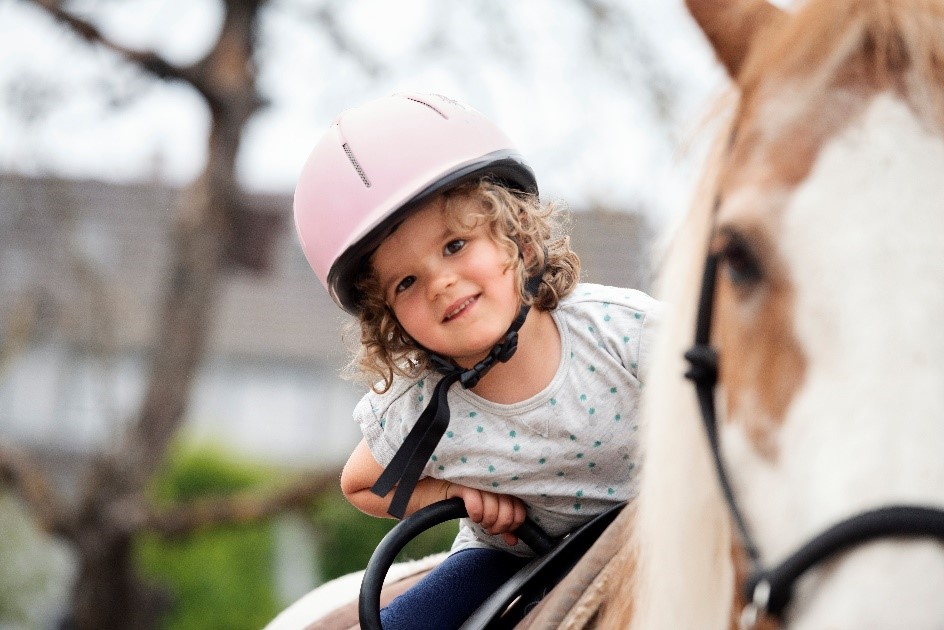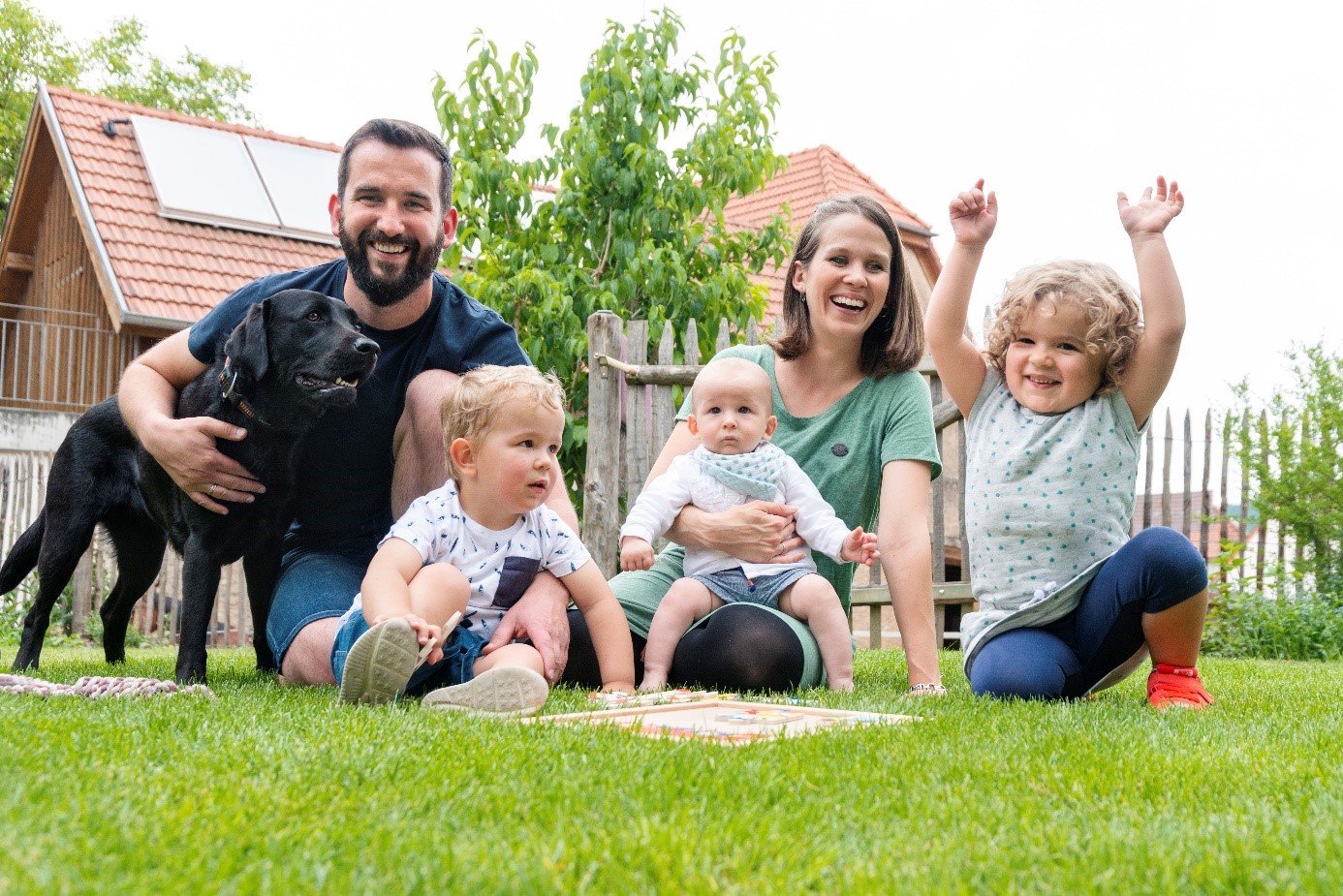When you see Emma’s beaming smile, you can’t tell what the little girl has been through. Especially when she’s riding her grandma’s horse, Benny. Or when she’s playing boisterous games with her family and her dog, Hope.
“The fact that Emma has stayed so cheerful, despite everything she’s been through, means everything to us,” says her mother, Marie-Christin. At the age of seven months, Emma was diagnosed with a pilocytic astrocytoma, a slow-growing brain tumor. She had lost her appetite, stopped putting on weight and stopped growing. When more symptoms appeared, like eye twitching, her parents contacted University Hospital Heidelberg (UKHD). After some preliminary tests, the doctors made a diagnosis: a brain tumor adjacent to the pituitary gland was disrupting Emma’s ability to feel hunger and her hormonal balance.
Family life turned upside down
First, the young family had to spend five weeks on the children’s oncology ward at the UKHD, which is also part of the Hopp Children’s Cancer Center Heidelberg (KiTZ), for more examinations. “At the time, we felt paralyzed and withdrew from life completely,” Marie-Christin recalls. “We didn’t even want our families to visit.” They cancelled the wedding they’d planned and Marie-Christin left her job in Stuttgart. Her husband, who runs his own business, took sick leave for several weeks. Emma started chemotherapy, which was to last 18 months. As well as the emotional challenges, the couple now faced all manner of practical questions: How do we clean the catheter fitted to administer the chemotherapy? Can we go on holiday? Is Emma allowed to go to nursery?
“The whole hospital team gave us reassurance”
“The doctors and the entire nursing and psycho-social support team spent a lot of time with us. They also reassured us through many small gestures and showed us that, even with this disease, it’s possible to have a good family life and to laugh again,” says Marie-Christin, looking back. “During unpleasant examinations, they distracted Emma with hand-made teddy-bear plasters or tickled her to make her laugh. We were very scared before one of the operations and the music therapist on the ward spent extra time cheering us all up with her guitar beforehand.”
Just 18 months later – Emma had already had two chemotherapy treatments – the tumor came back. The chances of being able to help her with another round of chemotherapy were not good. However, an opportunity for targeted cancer therapy arose at the KiTZ clinical trial center. Led by KiTZ Director Professor Olaf Witt, the team of physicians found a BRAFV600E mutation in the recurrent tumor – a genetic mutation for which approved medicines already exist. Emma was then treated with dabrafenib, which is usually used to treat skin cancer in adults. “Emma responded very well to this treatment,” says Olaf Witt. “It not only stopped the growth of the tumor but led to a clear regression.”
The journey back to everyday life
Today, four years after her first diagnosis, the family is sitting in the garden and Emma is playing with her two little brothers. Her last treatment was a year ago and she goes in for regular after-care checkups. She is receiving hormone therapy designed to support her growth. Marie-Christin now works close to home in her husband’s business so that she can manage everyday life with three children and Emma’s follow-up care.
Thanks to the reassurance provided by the doctors, the nursing team and the psycho-social support team, and to conversations with other parents in similar situations, the family has found its way back to everyday life. “On the recommendation of the ward physician, we even went on holiday during Emma’s chemotherapy,” says Marie-Christin. I still remember her in the pool with her Hickman line,” she laughs.
Despite the stress, you can see that the family is proud of having got through the past few years together. The year after next, Emma will start school. In the playroom there’s a wild jumble of various toys, including a stethoscope, a doctor’s white coat and bandages – because Emma says when she grows up, she wants to be a doctor.
Giving time
Through the "Giving Time“ donation project, KiTZ aims to offer more intensive care for patients and their families. With your donation we can offer additional support to affected families, strengthening them and taking some of the pressure off.




